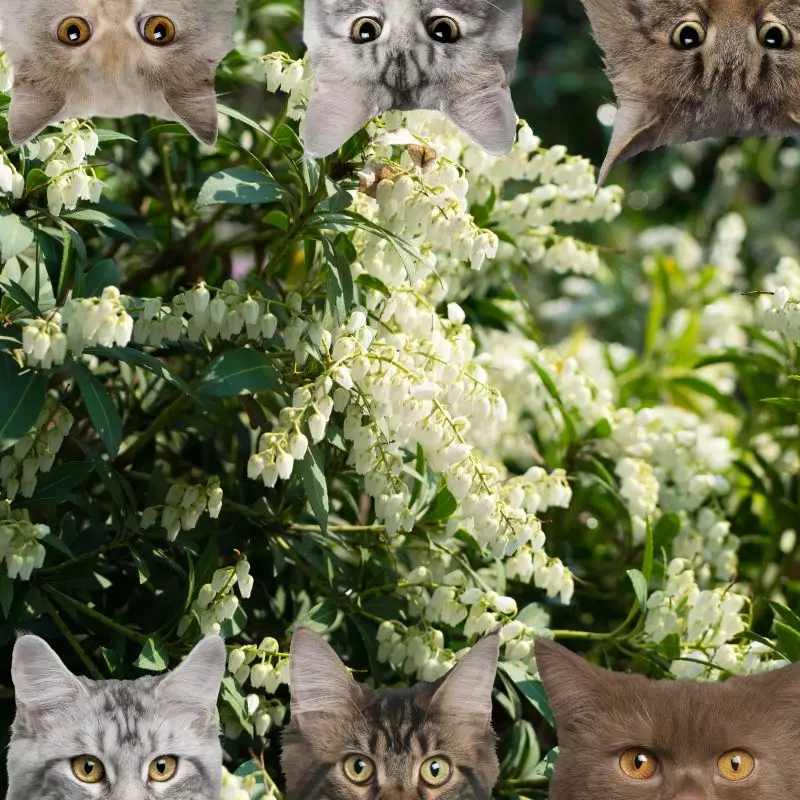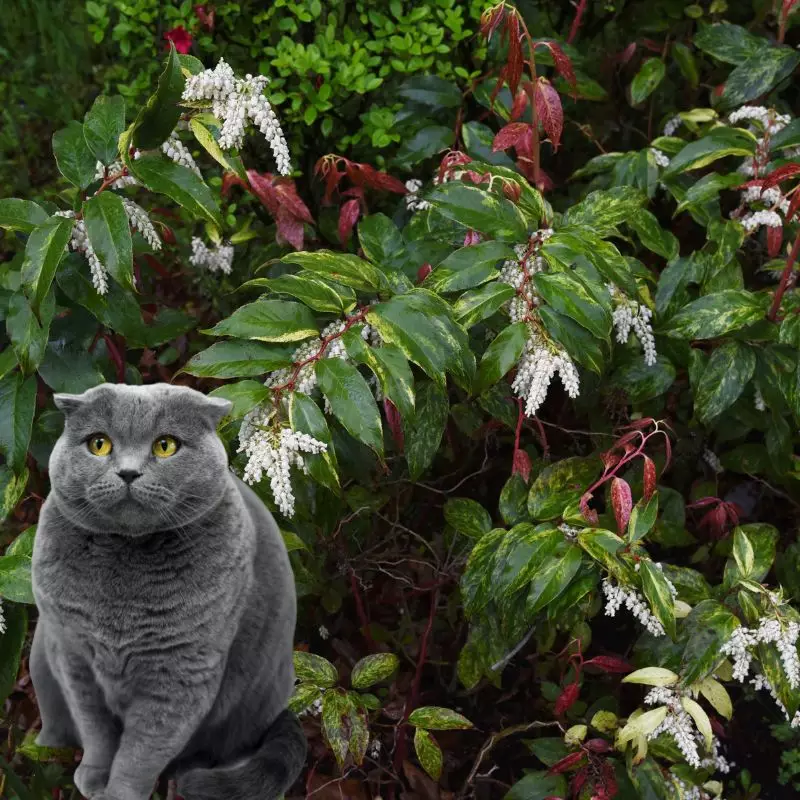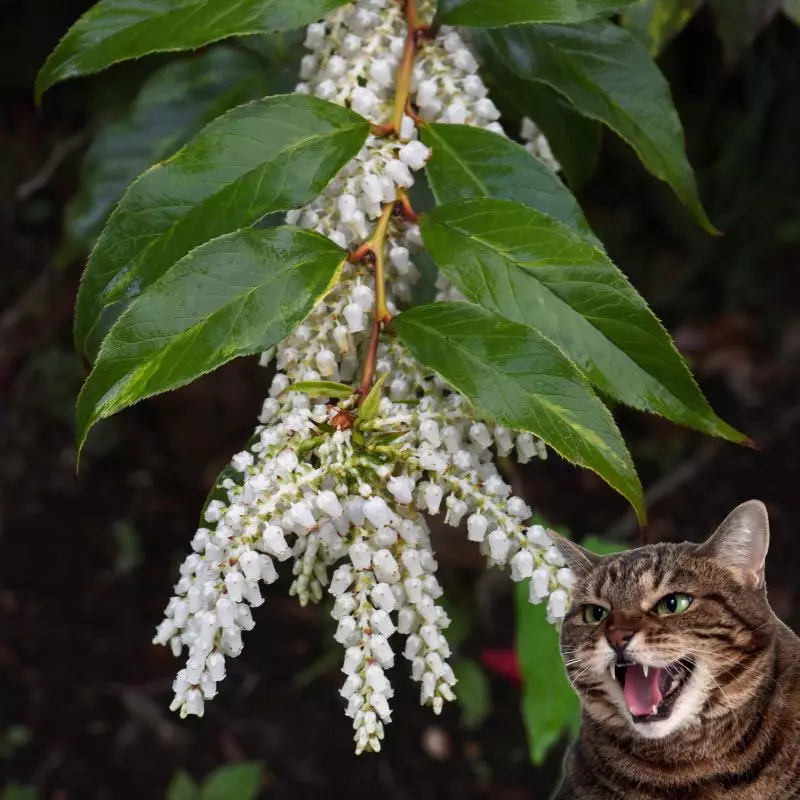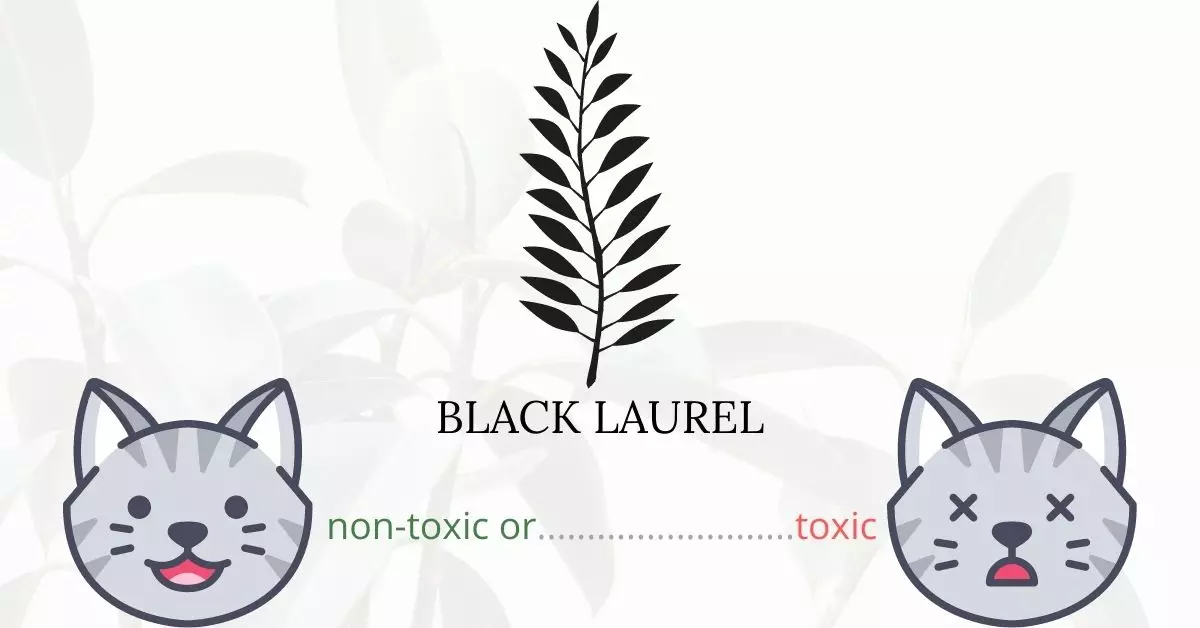Yes, Black Laurel, also known by its common names such as Dog Hobble, Dog Laurel, Fetter Bush, and Sierra Laurel, is toxic to cats. This plant contains grayanotoxins, and even a small ingestion can pose significant dangers for our feline friends. Grayanotoxins impact sodium channels, affecting the cat’s skeletal, nervous, and cardiovascular systems. Left untreated, Black Laurel poisoning can be fatal to cats.
This article has been meticulously crafted in collaboration with a team of experienced DVMs (doctors of veterinary medicine) who have provided accurate and current insights into the potential risks associated with plants like Black Laurel and their effects on cats. Additionally, our team has rigorously researched high-authority websites, including ASPCA and PetMD, to ensure the comprehensiveness and reliability of our information.
Clinical Signs of Black Laurel Poisoning in Cats

When a cat comes into contact with, ingests, or even smells the Black Laurel plant, various toxins, primarily grayanotoxins, can begin to adversely affect its body, leading to a range of clinical symptoms. If you observe any of these signs in your cat, it’s crucial to seek immediate veterinary attention to prevent the progression to more severe complications. Here’s a breakdown of the clinical signs and their underlying causes:
- Abdominal Pain: Caused by the irritation of the cat’s gastrointestinal system due to grayanotoxins.
- Hypersalivation: The body’s natural response to remove or neutralize the toxins, leading to excessive drooling.
- Diarrhea: The digestive system’s reaction to expel the harmful substances rapidly.
- Vomiting: Another defense mechanism to rid the stomach of ingested toxins.
- Depression: A result of the nervous system being affected by the toxins.
- Abnormal Heart Rate: Grayanotoxins can disrupt the normal electrical activity of the heart, leading to rhythm disturbances.
- Low Blood Pressure: Due to the toxins affecting the cardiovascular system and possibly leading to vasodilation.
- Tremors: A direct effect on the muscular system, causing involuntary muscle contractions.
- Temporary Blindness: Possibly a result of toxins affecting the optic nerve or areas of the brain responsible for vision.
- Weakness: Due to the overall systemic effect of the toxin on the body, particularly the muscular and nervous systems.
- Seizures: Caused by the impact of toxins on the brain’s normal electrical activity.
- Coma: A severe neurological response indicating an acute toxic overload.
- Death: In extreme cases, if the poisoning is not addressed promptly and adequately.
If you suspect your cat has come into contact with Black Laurel, it’s imperative to take it to a veterinarian as soon as possible for a thorough physical examination and necessary laboratory tests.
First Aid and Treatment of Black Laurel Poisoning in Cats

When your cat has been diagnosed with poisoning, the veterinarian may induce vomiting and offer fluid therapy, plus possibly oxygen therapy. The veterinarian may also prescribe medications to help the heart function correctly if necessary. It’s critical to take your cat to the doctor as soon as you detect it’s eaten a dangerous plant for diagnosis and treatment.
Recovery from Black Laurel Poisoning in Cats

A cat with only minimal consumption of Black Laurel may recover quickly and completely with prompt veterinary care. Your cat’s rehabilitation may take longer if his or her ailment is severe. Follow your vet’s post-treatment instructions and make sure that your cat is well-hydrated and comfortable at your home.
Prevention of Black Laurel Poisoning in Cats
Remove poisonous plants from your garden and surrounding areas and limit your cat’s activities outdoors. Create a safe outdoor area for your cat with a cat run, fence, or even a spacious cat patio linked to your house if your cat enjoys roaming outside. You can also purchase cat playpens or cat houses to keep them safe inside your home.
If you love plants but have cats at home, check out these lists:





